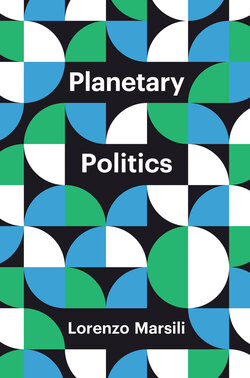Читать книгу Planetary Politics - Lorenzo Marsili - Страница 6
Introduction
ОглавлениеIn 1972 Henry Kissinger met Zhou Enlai in what would become the first step towards the great reconciliation between the United States and China.
‘How do you judge the French Revolution?’ the American Secretary of State asked. ‘It is still too early to tell’, replied the Chinese premier. The scene has become a classic illustration of the Chinese inclination for the long term, despite probably originating in a misunderstanding in translation: Kissinger actually referred to the revolution of 1789, while Zhou Enlai thought of the French uprisings of 1968. Nevertheless, the exchange still gets it right. It is only today that the parable inaugurated by the French Revolution, with the entry of the nation as the leading historical actor and unique reference point for citizenship and political agency, finally comes to a close.
The Constituent Assembly elected during the French Revolution of 1789 drafted the ‘Declaration of the Rights of Man and of the Citizen’. The title itself expresses the constitutive uncertainty of modern citizenship between the universal and the particular. In the Declaration we do not find a set of rights for all human beings and a set of rights reserved for citizens, but rather only those universal principles that unite the entire humanity. The universal aspect however goes hand-in-hand with the enshrining of particular rights in national law, which stands as their guarantee. The nation is both the guarantor of rights and the space for collective action by citizens to defend them. The nation, with its general will, is the instrument capable of establishing the universal in the particular and making the particular part of the universal.
We all know how much pain and destruction has emerged from such aspirations. The exclusionary character of the nation emerged immediately after the French Revolution, with the first great revolt in the French Caribbean led by the freed slave and black Jacobin Toussaint Louverture. Quoting the Declaration and singing the Marseillaise, Louverture found himself fighting that very same Republican army committed to extending across Europe new revolutionary principles that were apparently universal but actually denied to colonial peoples. We know the history of nations and we remember how often they turn against their own people in genocidal and persecutory acts. We know how arbitrary, and cruel, is often the choice of who really belongs to the nation.
But national aspirations fail today in another and deeper sense. The nation is no longer capable, even in its most ideal perspective, of guaranteeing human rights and the free exercise of popular sovereignty. Citizens’ rights are no longer superimposed on, they are no longer the particular of, universal rights, but only a part or a subset of them. The nation, provincialised and marginalised, no longer guarantees full exercise of political, social and civic agency in a human society that has now trampled every border.
Many would like to convince us that the recovery of control and sovereignty passes by an abandonment of the world and an entrenchment behind the material and mental borders of closed territories and indomitable, great-again nations. But this idea has never been as false as it is today. If we do not want our political agency and our powers of the imagination to become a mere footnote in a tragic history of impotence, we must rather recover the planet and recuperate the belief in our power of transforming it.
In the pages that follow we will briefly run through the short history of the becoming world of the world, leading up to our contemporary sense of loss and disorientation. We will then offer some cursory notes for a possible planetary politics to liberate our world and our common humanity.
